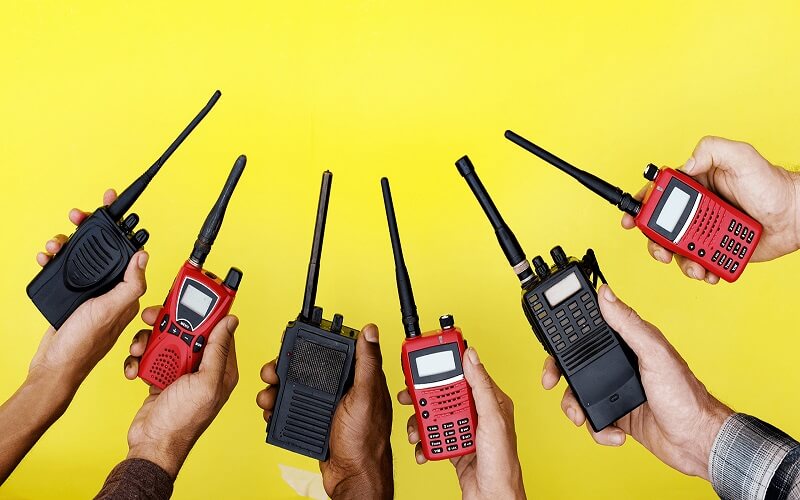Walkie talkies can be used for a variety of purposes, and they are popular not just among hikers and campers, but also for events and gatherings, professional use, and in emergency situations. When selecting a walkie talkie to buy, there are several factors to consider based on your specific needs and intended use. This buyer’s guide will list some applications in which you can use walkie talkies, and the considerations you want to think about before making a purchase. If you want to look at a full range of available models, you can visit RS Components.
Applications of walkie talkies
Walkie talkies can be used in a large variety of situations, and they are great where quick and reliable communication is needed over short to medium distances. They can also be a very dependable tool when cell signal is not available, and mobile phones cannot be used.
Outdoor activities
It is no secret that walkie talkies are great for outdoor activities and adventures, such as hiking, camping, and fishing. In secluded areas of the wilderness, cell signal is often unavailable. Walkie talkies are used instead, where owners of these devices can communicate clearly over short to medium distances.
Events and gatherings
Walkie talkies can also be used at events and gatherings where cell phone use is not allowed, or to create a special element of fun and engagement. Some of these events include concerts and festivals, as well as parties and dinner gatherings. It can be a great way for family and friends to keep track of each other’s whereabouts, and they can be used in icebreaker games.
Professional use
Walkie talkies are often used by security personnel and construction workers, as well as event coordinators and organisers, to communicate with co-workers. This is because they are reliable devices that can easily be used, and they can provide an inexpensive means to facilitate communication.
Emergency situations
Finally, walkie talkies are invaluable in emergency situations. If you were stranded and you did not have your cell phone, or your electronic devices were out of battery, walkie talkies can be used for you to communicate with your family and friends. In the event of natural disasters such as earthquakes and power outages, they can continue to be used as well.
Considerations when choosing a walkie talkie
Some considerations you must have when choosing a walkie talkie include its range, frequency, battery life, and durability of the device, as well as its size and weight and additional features. Below, we explore each factor:
Range and frequency
Each set of walkie talkies operates within different ranges and frequencies. The range is the distance you need to communicate over – some walkie talkies only have a range of a few kilometres, while others can go up to much longer distances. The frequency of the walkie talkie can affect its range and clarity of communication, and using one in crowded areas can lead to interference. If you plan on using your walkie talkies with many people around, you should look for models that have multiple channels or a privacy code feature to reduce the possibility of interference.
Battery life
Some walkie talkies require the use of batteries, and their energy use varies. You should consider how long you plan to use your walkie talkies, and whether you will require models that use rechargeable batteries. This also depends on whether you will have access to electrical outlets. If you are planning on taking these devices out into the open, to, say, camping, you should select models with long battery lives.
Durability
Durability is how well your walkie talkie will be able to handle harsh weather conditions or usage in rough terrain. If you are planning on using them on the water, you should also look for models with a waterproof function that can take you through splashes.
Size and weight
Walkie talkies come in various sizes and weights. Depending on what you plan on using them for and where you want to use them, you should ensure their size and weight are appropriate. If you are taking them on hikes or adventures outdoors, you may also want to make sure they will not become a burden when carrying for long periods.
Additional features
Additional features you may want to consider include built-in white flashlights, weather alerts, emergency sirens, sound alerts, and colour lights. Whether you need these features will depend on what you plan to do with your devices. If you are planning on outdoor adventures, having these features can greatly improve your experience while saving you the cost of buying separate equipment.
Cost
Finally, you should consider the cost of walkie talkies. Think about how often you will be using them and the functions you will need on your device, and then see if they are worth the investment.
Last words
Walkie talkies are reliable tools of communication where cell phones cannot be used, and they have a variety of applications. If you are choosing a walkie talkie to purchase, you should ensure you understand what you will be using the devices for and review the checklist above to make the best decision for you.



